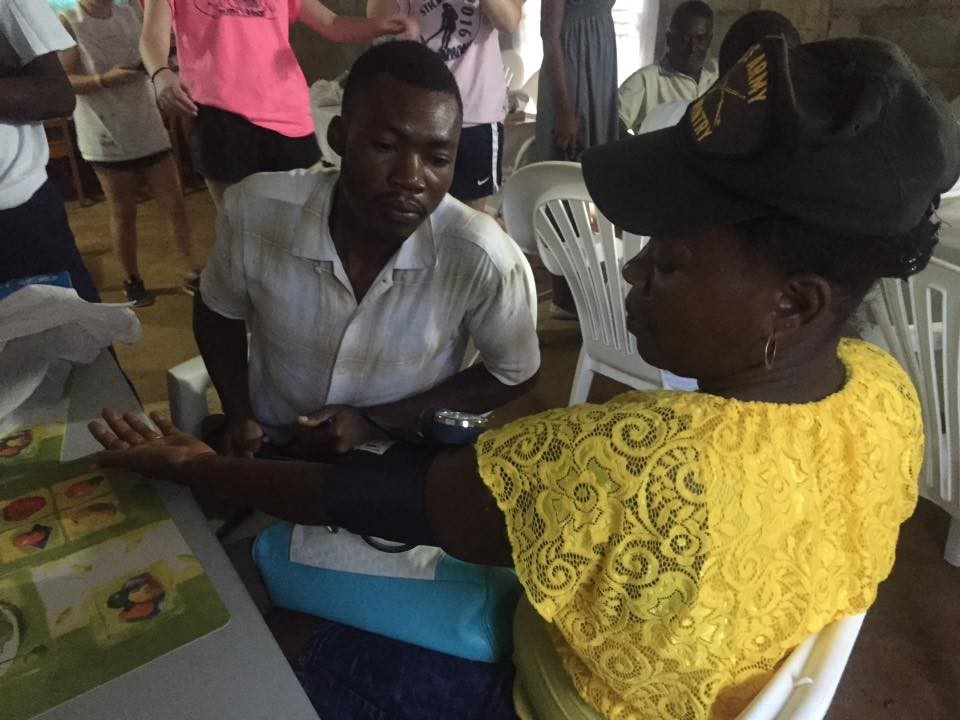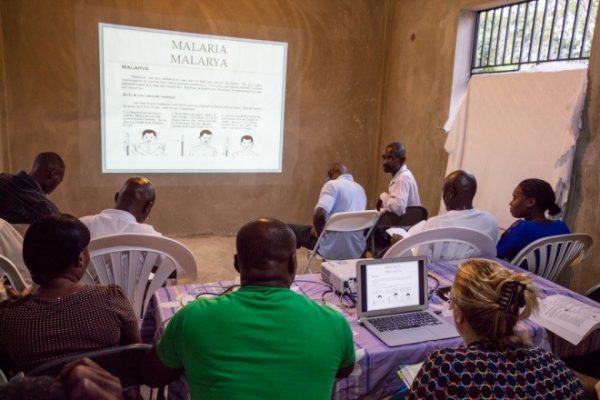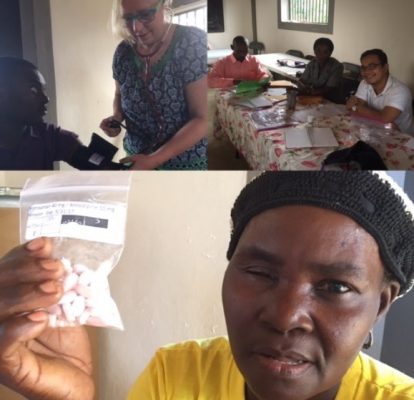As medical missionaries we all struggle with the question of, “What happens to patients when our mission week is over?” Our organization, C I Haiti, serves a very remote region in the northern mountains of Haiti. After doing medical missions there, our team decided this community would be better served if they learned how to recognize and manage illness themselves.

We obtained a copy of the Hesperian book – “Where There is No Doctor” by David Werner. We had a relationship with the 15 teachers at the local school so, we pitched the idea of a community health program and they have been enthusiastically learning since. Lessons were presented by power point and some hands on instruction.
Each of the 15 teachers was given a home medical kit with basic supplies and a copy of the book in their native language, Creole. They are treating their neighbors and school students, as needed, for minor illness, burns, first aid, diarrhea, skin disorders etc.
They have all been instructed on how to take blood pressure and have been screening members of the community for hypertension.


As a result, our team found 300 prescreened patients waiting to see us on a medical trip in February 2017. We started them on medication and created a clinical pathway for our community hypertension coordinator to follow in our absence. We give her medication and she provides the refills of medication when they come for their recheck according to the pathway. Empowering them through education and allowing residents to care for each other is a wonderful model for sustainability and continuity of care. This is what we are committed to at C I Haiti. www.cihaiti.com. Deborah Marrington CRNP, can be contacted at CIHaiti@mail.com.